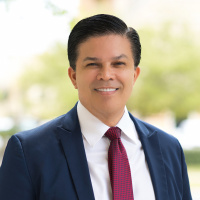 Mission RICO Act Lawyers, Texas
Mission RICO Act Lawyers, Texas
Sponsored Law Firm
-
 x
x

Click For More Info:
-
Law Office of Robert R. Jones III
2411 Emancipation Ave, Suite 202, Houston, TX 77004» view mapCriminal Defense Expert Representation for Reasonable Rates
If you need representation, call me 24/7.
800-883-8760
Not enough matches for Mission RICO Act lawyer.
Below are all Mission Criminal lawyers.
Sponsored Lawyers
1-10 of 57 matches
DUI-DWI, Accident & Injury
When you’re looking for an attorney to represent your best interests, it’s important to find an honest lawyer who will treat you as an individual, not just another case. Bobby Garcia knows first-hand what it feels like to be mistreated by those in the legal profession, and he is committed to making sure that those in his community have access to high-quality, affordable legal representation. When it comes to personal injury cases or business disputes, the lawyer you choose can have a massive impact on the outcome you receive. When you need a lawyer who will fight for your rights, you can trust Bobby Garcia.
(more)


 Robert Jones San Antonio, TX
Robert Jones San Antonio, TX AboutLaw Office of Robert R. Jones III
AboutLaw Office of Robert R. Jones III Practice AreasSpecializations
Practice AreasSpecializations

